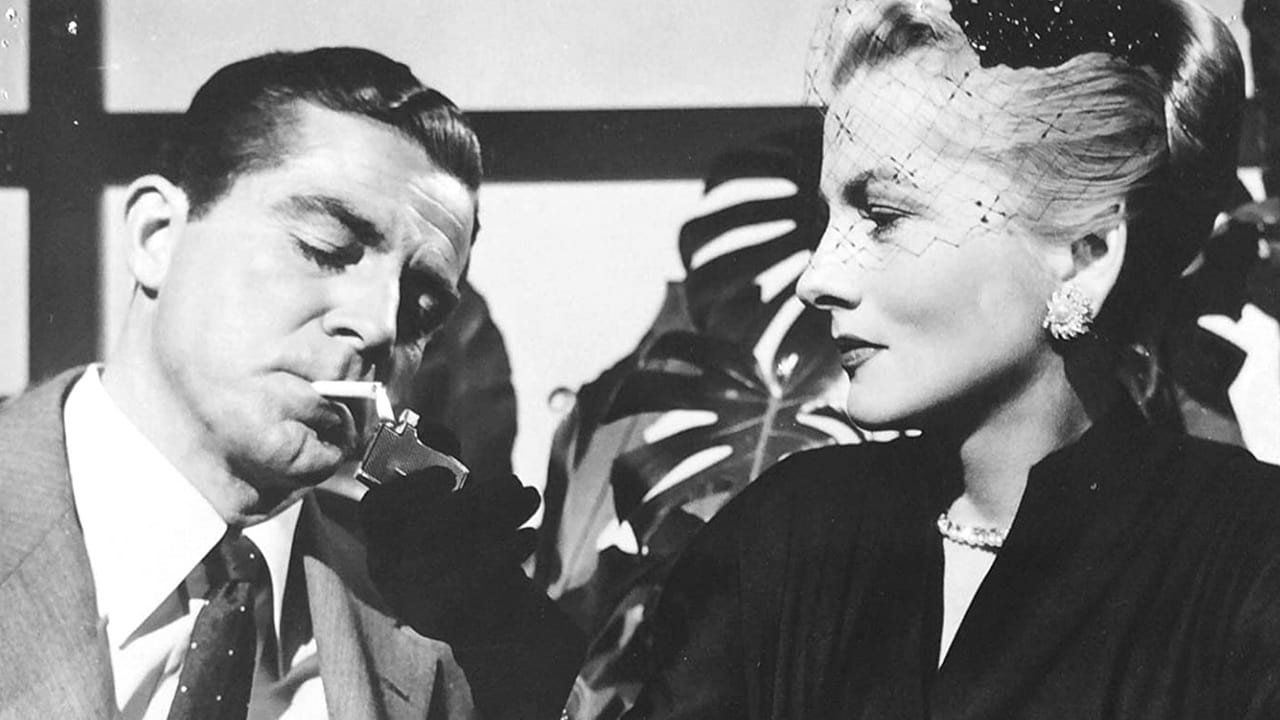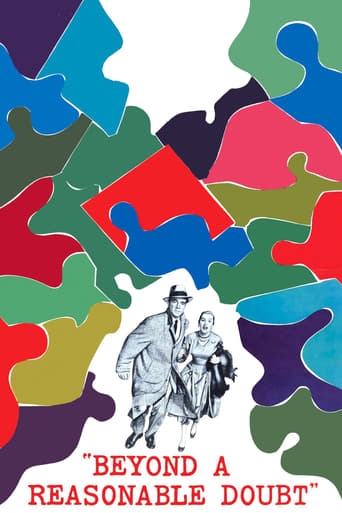

a film- noir who brooks in inspired manner the ordinaries rules of genre.the secret - precision of atmosphere build, the use of details, the acting who must be only correct and the final. result - a kind of puzzle who presents a new image , far to the expectation against the clue from title. that is the difficult fact, because Lang propose a different way for trip. and the viewer who desires see same story in different nuances, ignores the admirable craft who defines the master's signature. extraordinary in this case is the equilibrium. not the mistakes, at first sign, from script who does unrealistic few scenes, not the performance of actors who could seems be cold. but the work of director to give elegance to a story who impress for its refined elegance and subtle solutions. a good film ? maybe. more important, a high Fritz Lang.
... View MoreI had forgotten that I had previously seen this film. The overall concept seemed vaguely familiar, but I had forgotten enough of the details that I thought it must be similar to some other film I had seen.I always liked Dana Andrews, and do in this film, too, although this is hardly one his best remembered films. Andrews here is as good as ever, but there are places the film itself lets him down.It must have been a letdown for Joan Fontaine. Just a decade earlier she was making big budget films with the likes of Cary Grant. This is no A picture, although I would call it a very good B picture.One of my favorite character actors is here -- Sidney Blackmer. Excellent for his part.Philip Bourneuf plays the district attorney. He looks the part -- at least as it might have been thought of back in 1956, but he isn't very impressive with his acting here. There are a number of other character actors here that you will be more familiar with. In terms of the cast, overall this film is relatively impressive.This film is sneaky. You think you have it all figured out about 15 or 20 minutes into it. But, you will be surprised.Dana Andrews, a writer, agrees to take the fall for a murder in order to help his fiancé's father (Sidney Blackmer), a newspaper publisher, make a point against capital punishment. They plot to fake evidence to make it appear he committed the murder.You're only into the film a few minutes before you begin to think that either Blackmer is guilty himself and is trying to frame Andrews, OR Blackmer will die before being able to prove Andrews innocent. Duh! I knew this when I was a kid watching this film on t.v.Secondly, you know Andrews will be convicted and sentenced to the electric chair. Duh...again.The end of this film is filled with twists, some of which are a bit surprising. And the ending is not what you will expect. I think the last 15-20 minutes are clumsily done, but effective. This film is worth watching.
... View More'Beyond a Reasonable Doubt (1956),' another taut thriller from Fritz Lang, takes an intriguing concept and runs with it. Tom Garrett (Dana Andrews), a writer looking for an idea, and Austin Spencer (Sidney Blackmer), an editorialist against capital punishment, contrive a bizarre scheme to expose the flaws in the American legal system. Garrett agrees to set himself up as the prime suspect in a murder, using only circumstantial evidence. Spencer agrees to withhold the evidence of his innocence until after Garrett is convicted and sentenced to the death penalty. Joan Fontaine plays Susan Spencer, Garret's fiancée, who isn't let in on the ruse. The moment when Austin Spencer is killed in a car accident, leaving our hero seemingly without any hope of reprieve, is still shocking despite its inevitability, leaving a powerful feeling of hopelessness. The film's final twist, however, I did not see coming. Regrettably, 'Beyond a Reasonable Doubt' pulls yet another twist in its final seconds; it would've been better had the film been made a decade later, free from the restraints of the Production Code, which demanded (and received) an ending that "does not lower the moral standards" of audiences.
... View MoreOpening with a death-row electrocution and ending at the moment in which a man is presumably sentenced to the same fate, Reasonable Doubt is defined by its audacious, sensationalistic arrangement of events. The story's anti-capital punishment premise—a struggling writer frames himself for murder to prove the fallibility of the death penalty—obviously lends itself to pulpy embellishment, but the film's most spectacular feat is its jaw-dropping last-reel twist, which puts its own purported moral stance through the ringer by positing emotion as the true determiner of principles. Lang baldly manipulates the audience with this reversal, but his purpose, deeper than momentary awe, is to illustrate the eternal conflict in society between humankind's self-preserving unpredictability and its own noble, if constantly undermined, search for unified moral judgments. What ultimately transcends the stodginess of the theoretical conversations between the main players and their necessarily shallow characterizations (the film hinges on befuddlement for a reason) is Lang's empathy for a condemned man, a sensibility fully embodied in two shots: a close-up on a revoked certificate of pardon and the reverse shot of its regarder as he sadly considers freedom for the last time. In retrospect, the story's outcome is established in one of its very first shots, as the guilty party looks unblinkingly upon an execution while the other spectators turn away in disgust. Lang's thesis is easily described after all: the only man who can emotionlessly observe the practice of capital punishment is himself a murderer.
... View More